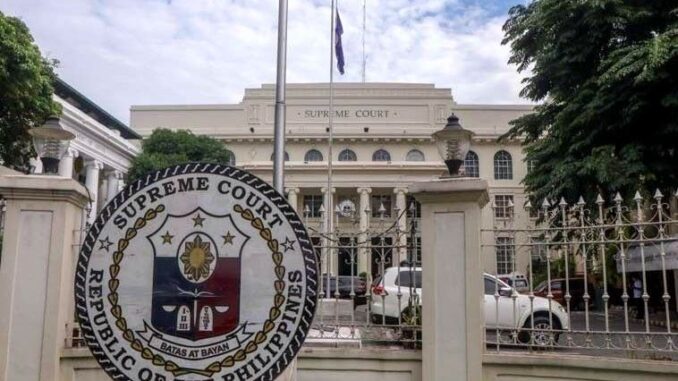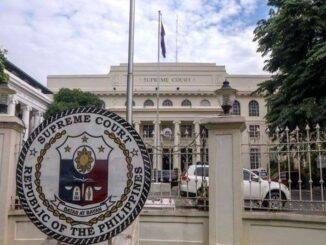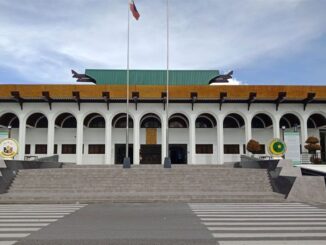
MANILA, Philippines — Can someone be prosecuted for calling out public officials over their official duties? The Supreme Court ruled that such remarks do not constitute slander unless actual malice is proven.
In a 16-page decision promulgated on Dec. 6, 2023, but only released on Wednesday, October 16, the high court said that offensive remarks against public officers, if related to their discharge of official duties, do not amount to defamation unless the prosecution can establish actual malice.
In this case, the Supreme Court acquitted Argelyn Labargan of oral defamation against barangay kagawad Aileen Macabangon.
The case
Macabangon, a barangay kagawad of Muntay, Kolambugan, Lanao del Norte, accused Labargan of grave oral defamation and light threats following a series of confrontations that escalated in 2013.
The tension began during a barangay conciliation meeting where Macabangon mediated between Labargan and Edna.
Virginia Labargan, the mother of the accused, allegedly insulted Macabangon, saying she should not mediate “because she is dumb, has not gone to school and is ignorant.”
Several people allegedly witnessed the exchange, which took place on Labargan’s terrace near a busy highway. Witnesses corroborated Macabangon’s version, suggesting that Labargan and her mother believed the barangay official was biased in Edna’s favor.
The conflict escalated further on March 13, 2013, when Macabangon testified that Labargan, upon reaching her mother’s house, pointed at her and shouted, threatening that she was not afraid of her. Labargan allegedly went inside, grabbed a bolo, and began hacking at a table while threatening Macabangon.
This prompted Macabangon to file charges of oral defamation and light threats.
The Municipal Trial Court convicted Labargan of oral defamation but dismissed the light threats charge. Labargan appealed the decision before the Court of Appeals, which affirmed her conviction. This led Labargan to file a petition before the Supreme Court.
Ruling
Despite the lower courts’ conviction, the Supreme Court ruled that the remarks made by Labargan were related to Macabangon’s duties as a barangay kagawad, and the prosecution failed to prove actual malice.
According to Article 358 of the Revised Penal Code, there is oral defamation or slander when:
(1) there is an allegation of a crime, fault, or flaw; (2) made orally; (3) publicly; (4) maliciously; (5) towards a person, alive or dead; and (6) such allegation tends to cause dishonor on the person defamed.
The court emphasized that public officials must be held accountable and face public scrutiny. Those holding office, particularly elected officials, must expect criticism as part of their roles.
“Being ‘sensitive’ has no place in this line of service, especially when allowing otherwise has the potential to create a chilling effect on the public,” the court’s decision read.





Be the first to comment